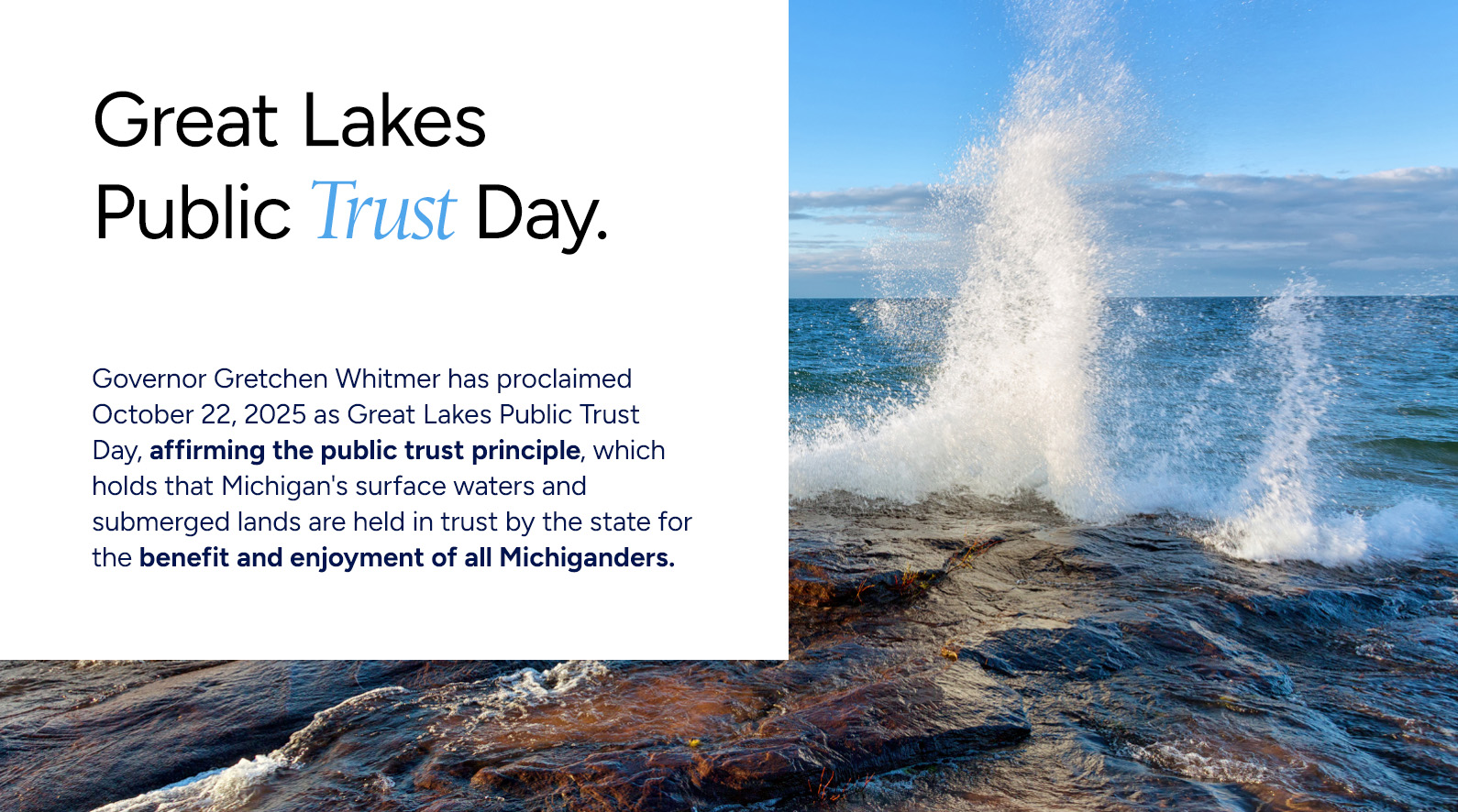
 Lansing, Mich. – Governor Gretchen Whitmer has proclaimed October 22, 2025, as Great Lakes Public Trust Day, affirming the public trust principle, which holds that Michigan’s surface waters and submerged lands are held in trust by the state for the benefit and enjoyment of all Michiganders. Flow Water Advocates worked with the Governor’s office to advance the proclamation, and has long championed the application of the public trust doctrine as a foundational legal tool to protect our waters and other natural resources.
Lansing, Mich. – Governor Gretchen Whitmer has proclaimed October 22, 2025, as Great Lakes Public Trust Day, affirming the public trust principle, which holds that Michigan’s surface waters and submerged lands are held in trust by the state for the benefit and enjoyment of all Michiganders. Flow Water Advocates worked with the Governor’s office to advance the proclamation, and has long championed the application of the public trust doctrine as a foundational legal tool to protect our waters and other natural resources.
“Michiganders are grateful for Michigan’s vast Great Lakes endowment, but many aren’t aware how vast it truly is, and how common law requires all Great Lakes states to protect the waters from harm and pollution,” said Flow Water Advocates Executive Director Liz Kirkwood.
Michigan is commonly depicted on maps as two peninsulas, but its territory also includes a huge, 38,000-square mile swath of the Great Lakes themselves – more than any other Great Lakes state. In fact, Michigan’s 38,000 square miles of submerged lands are bigger than the total area of Indiana and 12 other U.S. states. Michigan’s water boundaries touch the waters of Illinois and Minnesota as well as the water and land boundaries of Wisconsin, Indiana, and Ohio.
Notably, Flow elevated the state of Michigan as the key protector of our waters by invoking the public trust doctrine in litigation to remove the risky Enbridge fossil fuels pipeline from the Straits of Mackinac. Under that doctrine, which reaches back to Roman law, the state has the legal duty and right to protect the Great Lakes and bottomlands for the people of Michigan and future generations.
In 1892, the U.S. Supreme Court affirmed the public trust doctrine in a case involving a claim to ownership of Great Lakes shoreland and submerged lands by the Illinois Central Railroad. The Court found that “the state holds the title to the lands under the navigable waters of Lake Michigan…and that title necessarily carries with it control over the waters above them, whenever the lands are subjected to use…It is a title held in trust for the people of the state, that they may enjoy the navigation of the waters, carry on commerce over them, and have liberty of fishing therein, freed from the obstruction or interference of private parties.”
“We appreciate the Governor’s leadership, and this opportunity for public trust principles to become more widely known and understood,” says Kirkwood. “Environmental law pioneers like Joseph Sax and Flow founder Jim Olson recognized the power of the public trust doctrine to protect the waters we love, and indeed, it is the lens through which we view our most important work.”
###
Flow Water Advocates is an independent 501(c)(3) nonprofit organization based in Traverse City, Michigan. Our mission is to ensure the waters of the Great Lakes Basin are healthy, public, and protected for all. With a staff of legal and policy experts, communicators, and community builders, Flow is a trusted resource for Great Lakes advocates. We help communities, businesses, agencies, and governments make informed policy decisions and protect public trust rights to water. Learn more at www.FlowWaterAdvocates.org.


